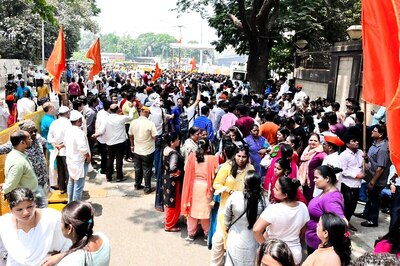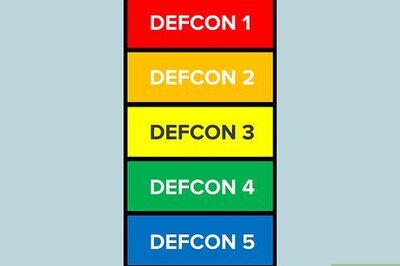
views
Simply imparting education is not sufficient to bring all unaided and minority private schools and colleges under the cover of Article 226, the Calcutta High Court ruled recently.
Article 226 is a constitutional right that empowers a high court to issue writs, including habeas corpus, mandamus, certiorari, prohibition and quo warranto, for enforcement of the fundamental rights of the citizens and for any other purpose.
A bench of Justice Moushumi Bhattacharya said: “The functions performed by the private body must transcend the limitations of the nature of the body or the source of the power and affect the rights of the public akin to that of the functions performed by the State in its sovereign capacity.”
The court made the observations on writ petition moved by an Assistant Teacher of St. James’ School, Kolkata against the notice issued by the school mandating submission of Covid-19 vaccination certificates for the staff.
THE CASE
The petitioner had refused to undergo vaccination on the grounds of violation of his religious beliefs, and consequently, he had been denied entry to the school and had not been paid any salary since October 2021. Through the present writ petition, the petitioner sought a declaration that administration of Covid-19 vaccine is not mandatory when it conflicts with a person’s personal religious beliefs. He also sought a mandamus commanding the respondent school to allow him to continue his work as a teacher and release his salary with all arrears.
However, the school challenged the maintainability of the writ petition contending that as the respondent school was a private unaided school a writ petition against it could not be maintained.
On the other hand, the counsel for the petitioner argued that as the respondent school performs a public function in imparting education to students, it would come within the purview of Article 226 of the Constitution of India.
The single judge bench referred to various judgments of the Top Court, including St. Mary’s Education Society vs. Rajendra Prasad Bhargava (2022), said that although the decision on amenability to writ jurisdiction may vary on the particular facts of a case, the focus on private bodies has shifted to and settled on the nature of the duties being performed by the private body.
“The emphasis is not on the source of power, but on the performance of a function which can be equated to that of the State,” it emphasised.
‘DICHOTOMOUS’
The court stressed that the action challenged must satisfy the test of public law in the form of discharge of public functions with the object of achieving a collective benefit for the public with the body having the authority to perform functions of a public nature.
The court held the attempt of the petitioner “indeed dichotomous”, while stating that a “purely personal and pragmatic case for monetary relief fixed on lofty (and vexing) religious speculation cannot be sustained and that too against a private un-aided school”.
“The expanded contours of Article 226 of the Constitution making space even for private individuals discharging public duties or public functions cannot become the justification for entertaining writ petitions for disputes where the right in question is purely in the realm of private law and cannot be wedded to the public duties performed by the entity,” the court held.
Read all the Latest India News here
















Comments
0 comment